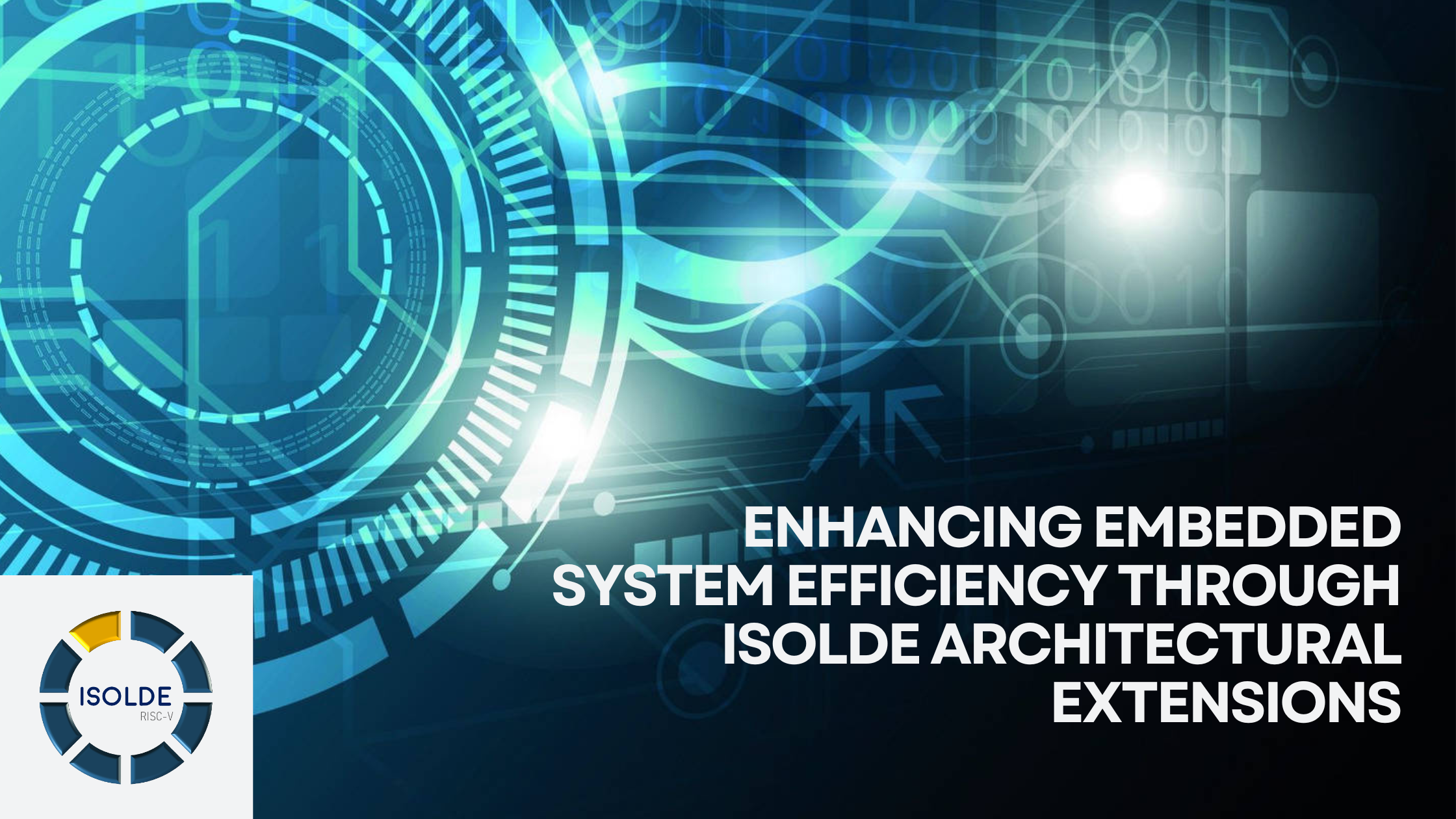
In the context of the ISOLDE project, Politecnico di Milano (PoliMi) develops approximate computing technologies at the hardware and software level, cryptographic accelerators, and efficiency enhancements for real-time computing. The proposed advances are applied to the Space demonstrator RISC-V-based platform.
Approximate Computing is an emerging paradigm that attempts to improve the energy efficiency of computation, a critical issue for battery-powered embedded systems as well as to address the increasing energy footprint of ICT worldwide, by trading off some of the computation accuracy.
Briefly, in any computer system, all computations are performed with a certain degree of accuracy, i.e., on a fixed number of digits (more precisely, of bits). This number of digits is usually vastly oversized with respect to the actual ranges of the numeric values computed, to minimize the risk of errors.
The TAFFO framework enables the reduction of the data size, as well as the switching between different types of data representations (e.g., floating point, fixed point, etc.) to trade off accuracy that is not actually needed by the computation for lower energy consumption, obtained by employing custom hardware, such as the customized floating point unit also developed by PoliMi, or by adapting to the available hardware characteristics (e.g., switching to fixed point when a hardware floating point unit is not available at all).
With the seTHet and luTHet extensions developed in ISOLDE, TAFFO is also able to efficiently exploit the memory subsystem of an heterogeneous system, by tuning the precision in accordance to the available direct memory access bandwidth and by tabulating costly trigonometric functions instead of computing them.
Considering a Sobel edge detection, a different tuning of the available memory for trigonometric function tabulation minimally affects the quality of the output yielding a 30× speedup and, consequently, a reduction of the total energy by the same factor. The framework then selects the best solution according to the required quality and the available memory.
Politecnico di Milano is the foremost technical university in Italy, with over 45,000 students in engineering, architecture and design, and is ranked among the first in the European Union according to the 2025 QS ranking. The university also serves as a technology development and transfer hub, with over 100 spin off companies and over 3000 patents. Within Horizon Europe, it has obtained funding for over 150M€ in over 300 projects, including 36 ERC grants.
The HEAP laboratory of the Department of Electronics, Informatics and Bioengineering is a cross-disciplinary research team of around 20 people with skills covering Embedded and Cyber Physical Systems, Design Methodologies, Low-power Design of Software and Hardware, Compiler Construction, and Embedded Systems Security and Data Privacy.
The group has been active for over two decades in designing architectures and in developing methodologies and prototype tools to support the automation of different design phases of advanced embedded and computing systems.